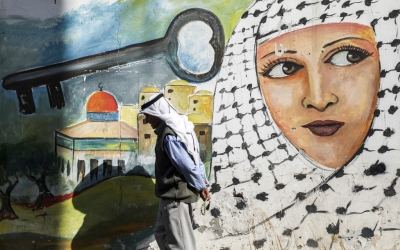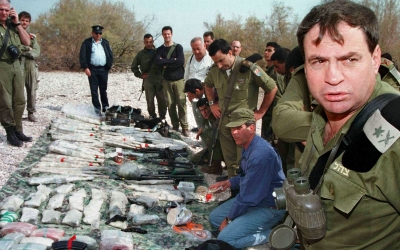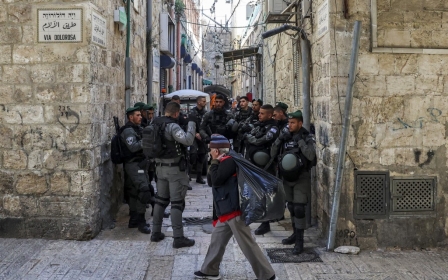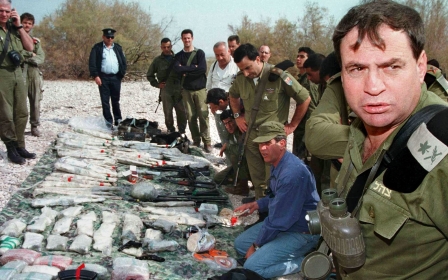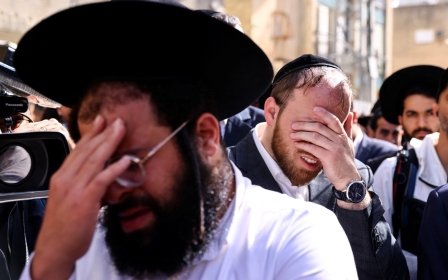Israeli troops kill two Palestinians in army raid on Jenin
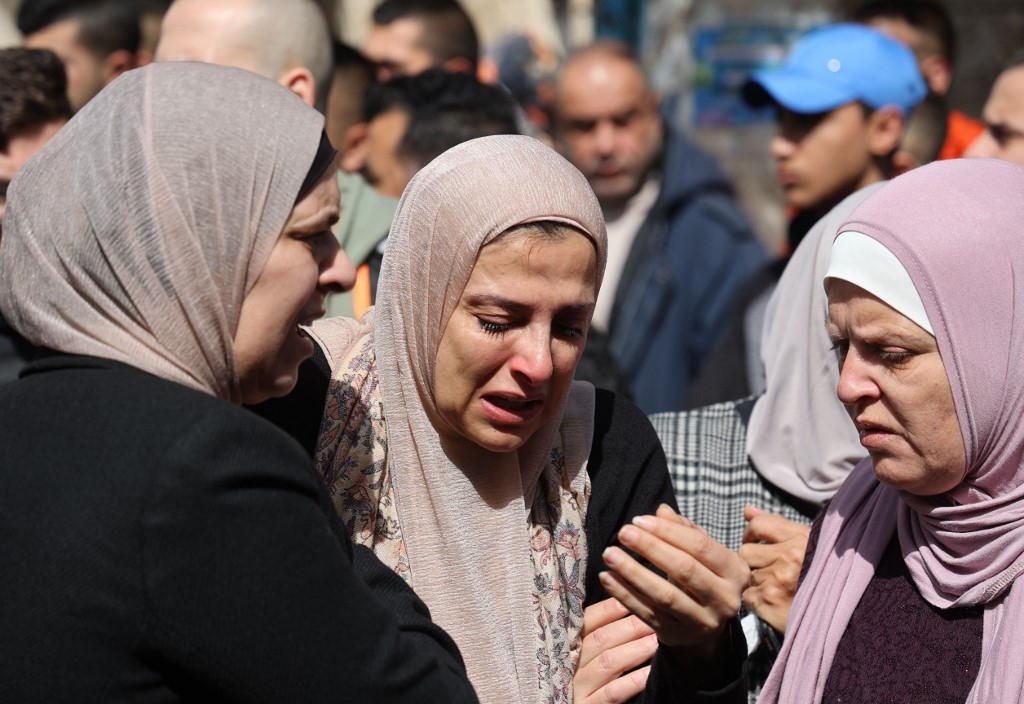
Three Palestinians were killed on Thursday morning by Israeli fire in separate incidents across the occupied West Bank, the Palestinian health ministry and local media said.
During a morning raid on Jenin city in the north of the West Bank, Israeli soldiers shot and killed two Palestinians identified as Sanad Abu Atiyeh, 17, and Yazid Saadi, 23.
In the southern West Bank city of Bethlehem, a third Palestinian was killed after reportedly attempting to stab an Israeli man.
The health ministry said Atiyeh and Saadi died from bullet wounds after arriving at Ibn Sina hospital in Jenin with serious injuries. Around 15 more people were wounded by live bullets during the Israeli raid. At least three are in critical condition.
The army raid prompted civilian confrontations with soldiers as well as a gun battle with Palestinian fighters in Jenin refugee camp.
Of the Palestinian casualties, only one suffered an injury in the exchange of fire. The rest were shot while throwing rocks and attempting to stop the soldiers from advancing into the camp, including the two that were killed.
An Israeli soldier from the undercover Duvdevan unit sustained a minor shoulder injury during the operation, according to Haaretz.
Since last year, Jenin camp has witnessed an increase in violent incursions by the Israeli army, which often lead to gun battles with armed fighters in the fortified camp.
In Bethlehem, a Palestinian reportedly attempted to stab an Israeli man on a bus near the illegal settlement of Efrat. A 30-year-old Israeli was seriously injured, Haaretz reported.
The Palestinian, identified as Nidal Ja'afrah from Bethlehem, was fatally shot by an armed Israeli bus passenger.
Last week, 11 Israelis were killed in three separate attacks by Palestinians carried out inside Israeli cities.
In the wake of the violence, Israeli police and armed forces raised the alert level to the highest it has been since May last year.
On Wednesday, Israeli Prime Minister Naftali Bennett called on gun owners to arm themselves in public following the attacks.
'Retaliation' raid
Atta Abu Rumaila, secretary of the Fatah movement in Jenin, said the Wednesday raid on Jenin was done in "retaliation" for the shooting in Tel Aviv's Bnei Brak on Tuesday, in which a Palestinian from Yabad town near Jenin killed five Israelis.
"The occupation wants to raise the morale of its society with more killings and crimes against us," Abu Rumaila said.
He added that the Israeli army sent large forces into Jenin camp but left without arresting any of the young men it was seeking to arrest.
Two of the men arrested were identified as Barakat Shreim and Kamal Lahluh, the father of Baraa Lahluh, a man wanted by the Israeli army.
In nearby Yabad, the hometown of Diya Hamarshah, who carried out the Bnei Brak shooting, Israeli troops stormed and searched his relatives' house for the second day in a row.
House items were vandalised and members of the family were subjected to field interrogations. Pictures of Diya and Palestinian flags were torn. Soldiers also arrested Islam Ba'jawi, one of Hamarshah's friends.
The heightened atmosphere and violence in Israel and Palestine come just ahead of the Muslim holy month of Ramadan and the first anniversary of last May's uprising.
Israeli authorities have previously said they will allow police-protected settlers to enter al-Aqsa Mosque en masse during the Passover holiday, which will fall during Ramadan.
Israeli incursions at the mosque are seen by Palestinians as highly provocative, especially during Ramadan when al-Aqsa is full of worshippers. Many have warned that such raids will increase tensions.
Middle East Eye propose une couverture et une analyse indépendantes et incomparables du Moyen-Orient, de l’Afrique du Nord et d’autres régions du monde. Pour en savoir plus sur la reprise de ce contenu et les frais qui s’appliquent, veuillez remplir ce formulaire [en anglais]. Pour en savoir plus sur MEE, cliquez ici [en anglais].


